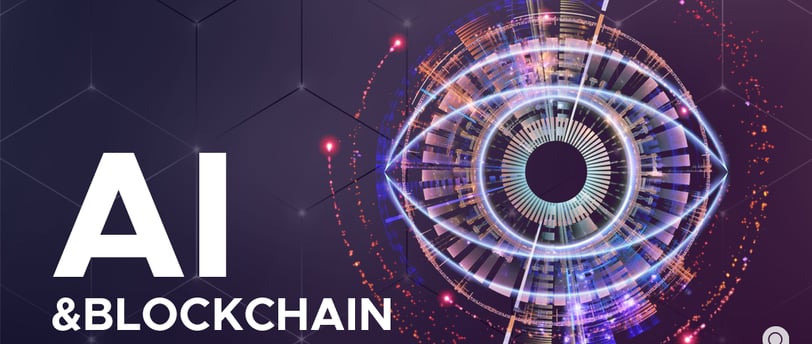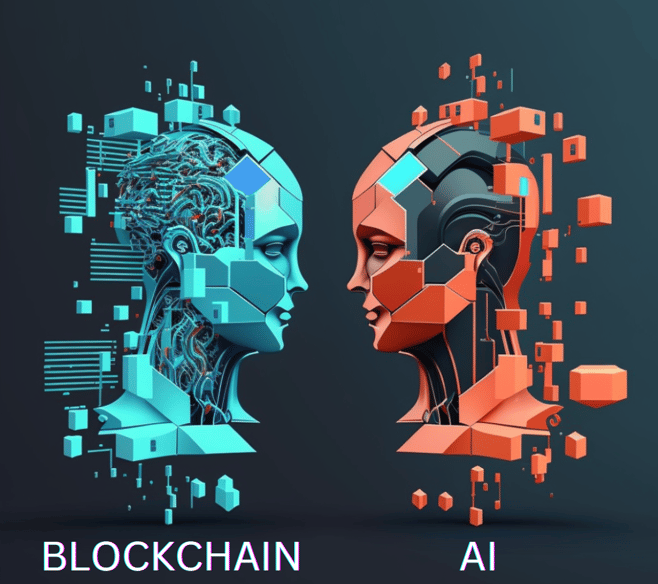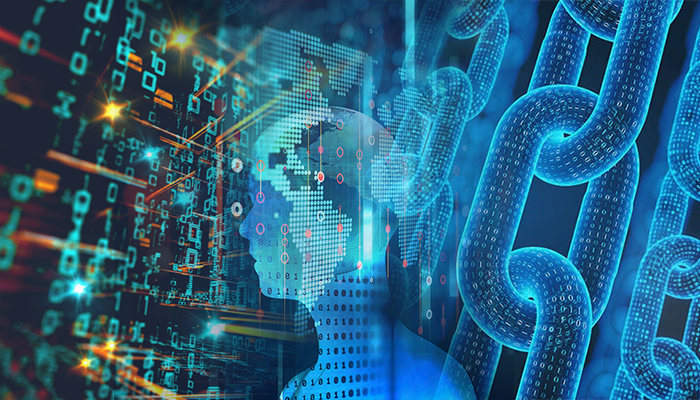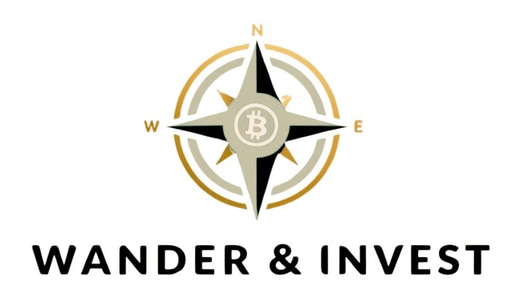The Relationship Between AI and Blockchain: A Technological Convergence
How AI and Blockchain complement each other and real world examples of their integration
CRYPTO
CoinMercenary
2/19/20254 min read


Real-World Examples of AI and Blockchain Integration
Several blockchain projects are already incorporating AI to enhance their ecosystems. Two notable examples are Near Protocol and Internet Computer Protocol.
Near Protocol: AI-Enhanced Scalability and Smart Contracts
Near Protocol is a decentralized, developer-friendly blockchain that aims to improve scalability and usability. AI plays a role in optimizing transaction processing and enhancing smart contract execution.
Sharding and AI Optimization: Near uses Nightshade, a sharding mechanism that improves network scalability. AI algorithms can optimize shard distribution, ensuring efficient resource allocation.
Developer Assistance: Near employs AI-driven tools to assist developers in writing and debugging smart contracts, making blockchain development more accessible.
By integrating AI, Near Protocol ensures that its network remains scalable, efficient, and developer-friendly, helping to drive mainstream blockchain adoption.
Internet Computer Protocol (ICP): Decentralized AI and Smart Web
Developed by the DFINITY Foundation, Internet Computer Protocol (ICP) is designed to decentralize the web by running applications and smart contracts directly on-chain. AI enhances ICP in several ways:
AI-Powered Decentralized Applications (dApps): Developers can build AI-driven dApps on ICP, where AI models are stored and executed on the blockchain, ensuring security and censorship resistance.
Autonomous AI Agents: ICP enables AI agents that operate on decentralized networks, executing tasks such as automated trading, content moderation, and more without centralized oversight.
Data Storage and Analysis: ICP provides a scalable environment for storing and processing large datasets, allowing AI models to analyze data in a secure and decentralized manner.
By leveraging AI, ICP is transforming the way applications are built and deployed, fostering a decentralized internet ecosystem.
Both of these project are in the top 50 Crypto projects in volume, if there will be an altcoin season coming or not, ICP and Near Protocol are among the best projects out there that are worth keeping an eye on.
Challenges in AI and Blockchain Integration
Despite their potential, AI and blockchain integration face several challenges:
Computational Complexity: AI algorithms require substantial computational power, while blockchain networks are often limited by processing speeds and storage constraints.
Privacy and Compliance: While blockchain provides transparency, AI systems often require private data for training, leading to concerns about privacy and regulatory compliance.
Adoption Barriers: Combining AI and blockchain requires expertise in both fields, making it difficult for developers to build seamless integrations.
Future Outlook: AI and Blockchain Synergy
The convergence of AI and blockchain is still in its early stages, but its potential is vast. Future developments could include:
AI-Governed DAOs: Decentralized Autonomous Organizations (DAOs) governed by AI-driven decision-making models.
Self-Optimizing Blockchain Networks: AI algorithms that enhance blockchain scalability, security, and transaction efficiency.
AI-Verified Identity Systems: Decentralized identity solutions powered by AI for fraud detection and secure authentication.
Conclusion
AI and blockchain, though distinct in their core functionalities, are highly complementary. Blockchain ensures security, transparency, and decentralization, while AI brings intelligence, automation, and efficiency. Projects like Near Protocol and Internet Computer Protocol demonstrate how these technologies can work together to create powerful, decentralized solutions. As innovation continues, the intersection of AI and blockchain will redefine industries, opening up new possibilities for secure, efficient, and intelligent digital ecosystems.




Artificial Intelligence (AI) and blockchain are two of the most transformative technologies of the 21st century. While AI focuses on automation, data processing, and decision-making, blockchain ensures transparency, security, and decentralization. The integration of these technologies is paving the way for innovative applications across multiple industries, from finance and healthcare to supply chain management and beyond. This article explores the relationship between AI and blockchain, highlighting projects such as Near Protocol and Internet Computer Protocol that exemplify this synergy.
How AI and Blockchain Complement Each Other
AI and blockchain serve different purposes, but together, they create a powerful combination that enhances efficiency, security, and trust. Here’s how:
Data Integrity and Transparency: AI models rely on vast amounts of data for training and decision-making. However, the authenticity and integrity of data remain critical challenges. Blockchain’s decentralized and immutable ledger ensures that data fed into AI systems is verified and tamper-proof. This prevents data manipulation and enhances trust in AI-generated insights.
Decentralized AI Models: Traditionally, AI models are controlled by centralized entities, leading to concerns about data privacy and monopolization. By integrating AI with blockchain, models can be deployed in decentralized environments where no single entity has complete control. This democratizes AI and ensures fairness in decision-making.
Secure Data Sharing and Monetization: Blockchain enables secure data marketplaces where users can share and monetize their data while retaining control over privacy. AI can analyze and extract valuable insights from this data, benefiting both individuals and businesses. This is particularly useful in healthcare and finance, where sensitive data must be handled with the utmost security.
Smart Contracts and AI Automation: Smart contracts—self-executing contracts on blockchain—can be enhanced by AI for more intelligent automation. AI can analyze conditions and trigger contract execution based on real-world events, making processes more dynamic and efficient. For example, AI-powered smart contracts can be used in insurance claims processing, automatically verifying conditions and releasing payouts without human intervention.

